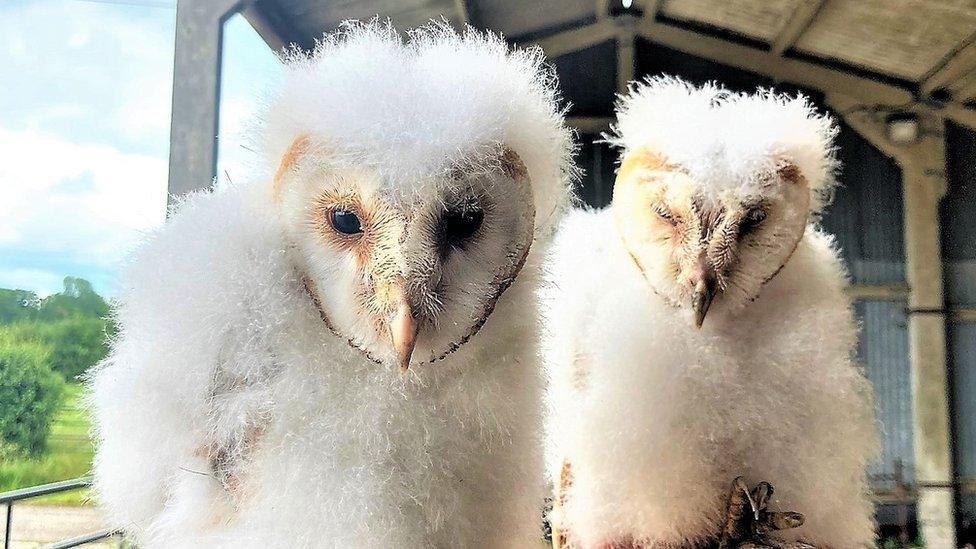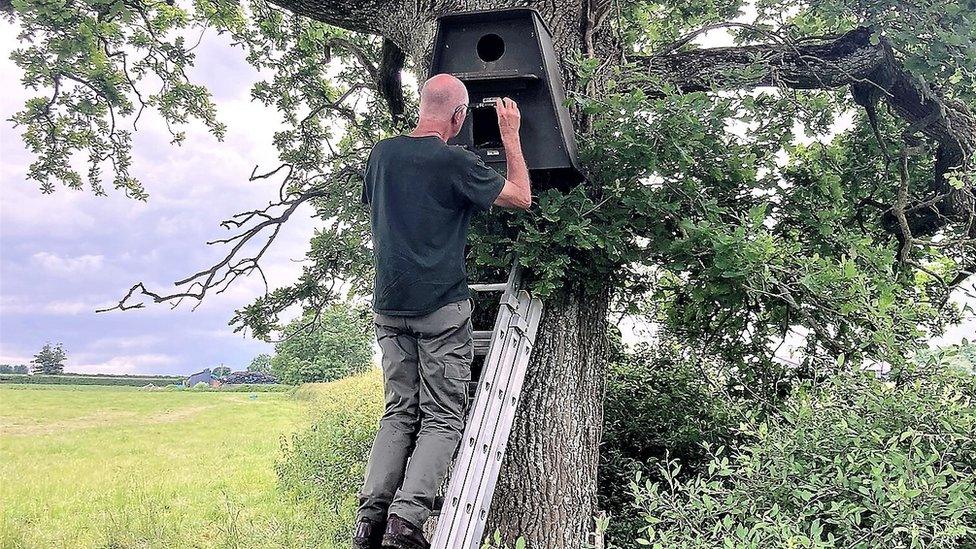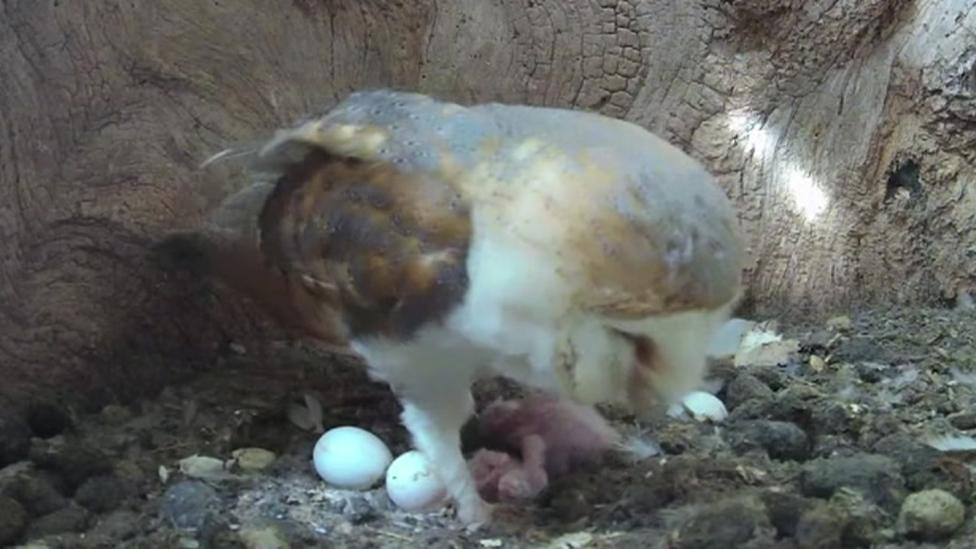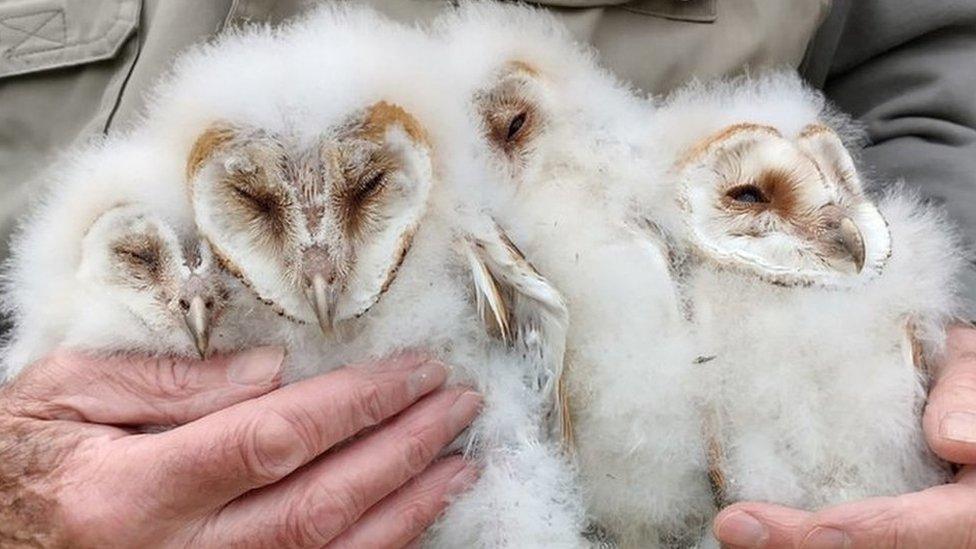Highest number of barn owls recorded, Dorset council says
- Published

A council programme has recorded its highest number of barn owl chicks since 2018
The highest number of barn owl chicks since the start of a conservation scheme have been recorded this year.
Dorset Council set up barn owl boxes at farms in 2018 to increase biodiversity, as it said there had been a "significant decline" in numbers.
The boxes were checked every year by volunteers and, over the past four years, a total of 20 have been installed across north Dorset.
This summer, the council found a record nine chicks across four of the farms.

Volunteers receive training as it is a criminal offence to disturb an owl in its nest without a licence
The information is sent to the British Trust for Ornithology (BTO) to help understand more about the owls, including their survival and condition.
The volunteers were also trained on how to sensitively check and handle the birds, as it is a criminal offence for anyone without a licence to disturb a barn owl while it is building a nest.
It is also a criminal offence to disturb one while it is in, on or near a nest containing eggs or young, or to disturb dependent young.
'Wildlife-rich county'
The farms have been given advice from the council on managing farmland in a way that considers barn owls, including keeping areas of grass uncut and rough edges.
The authority suggests tenants and landowners can create habitats for voles which are the barn owls' main food source.
Councillor Ray Bryan said he was thrilled about the positive impact on the number of barn owls in the county.
"As a council, we are committed to tackling the ecological emergency and are working hard to conserve our wildlife-rich county and enhance it wherever we can," he added.

Follow BBC South on Facebook, external, Twitter, external, or Instagram, external. Send your story ideas to south.newsonline@bbc.co.uk, external.
- Published17 June 2022

- Published29 November 2021
